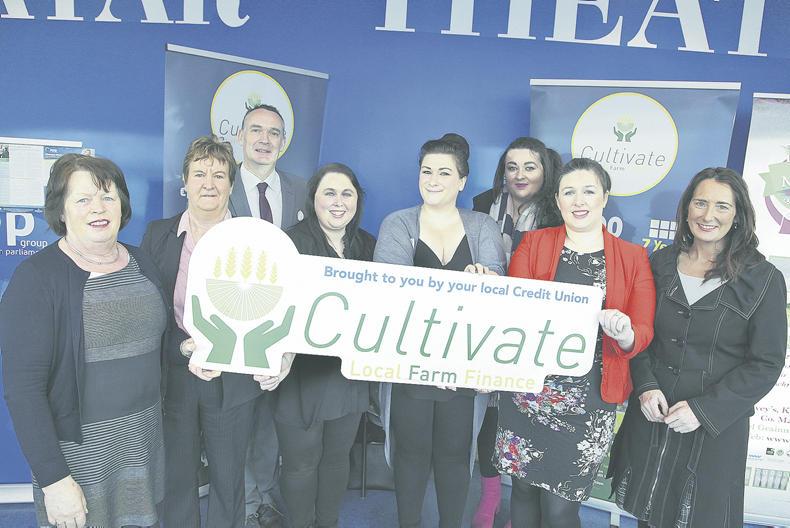Existing and would-be female entrepreneurs were left with plenty to think about following a farm diversification conference in Galway last week.
Contrary to popular perception, women remain a significant part of the agricultural workforce, accounting for 22% of the total annual work units (AWU). Of the 70,000 women involved in farming, just over 15,000 are farm holders, while almost 41,000 are the spouses of farm holders. A further 12,321 women are family members of the farm holder, while just over 2,000 women are non-family farm workers.
The figures emerged from a study which was based on CSO figures and completed by the National Rural Network (NRN) in 2013. Collectively, these women contributed 36,554 annual work units (AWU) on farms or 22% of total AWUs. By any stretch, this is a significant female workforce. What’s more, from 2000 to 2010, the number of spouses contributing AWUs to family farms showed an increase of 1%, whereas AWUs supplied by holders/owners decreased by 3%.
According to Dr Maura Farrell, lecturer in rural geography at NUIG, this indicates a relative increase in the level of spousal contribution to labour input on farms. Dr Farrell went on to outline the challenges faced by women who are working on-farm.
“Entry to the profession is unique and most women working on farms are the spouses of the land holder. The holder/owner is usually the public face of farming and generally CAP payments go to the holder/owner. The same can be said for training and knowledge transfer, which are mainly directed at the holder/owner,” she said.
Practical advice
Dr Farrell was speaking at the West Women in Farming (WWFI) Farm Diversification conference, which took place in GMIT last Thursday. A panel of 23 speakers covered everything from funding to marketing, legal and tax advice and the wide range of State supports that can be accessed.
This practical advice was backed up with the personal stories of six women who have established businesses, including Margaret Shepard of Connemara Organic Seaweed, Kristy McCann of Foran Equine, Grace Roche of Pretty Bird farm wear, Teresa Roche of Kylemore farmhouse and Ami Madden of Goat Ireland.
Ursula Kelly is the second generation of her family to be involved in Cormac Tagging, a business established by her father TJ Gormley. The business is well known for its range of equipment suitable for sheep farming. However, since 2002 they have tendered for part of the contract to supply the national herd with identity tags. Success finally came in 2016 and since then the business has quadrupled, with staff numbers increasing from three to 20.
Women to the fore across the EU but not in Ireland
According to Dr Maura Farrell, across the EU, women are to the forefront of innovation, farm diversification and self-employment.
“Women are involved in agri-tourism, artisanal food and drinks production, craft enterprises, telecommunications and caring services. However, Ireland has just about 7% self-employment of women in agriculture, forestry and fisheries compared to an EU average of 32%. Initiatives such as the ACORNS project, which aims to encourage a stronger level of enterprise development by women in rural areas, are welcome,” she said.
Cultivate
Chief sponsors of the conference were Co Galway Credit Unions. Four CUs in the county – Ballinasloe, Gort, Loughrea and Tuam – are spearheading “Cultivate”, a farm and small business lending scheme. According to David McDonnell, manager of Loughrea CU, €5m has been lent to 480 farmer clients to the end of 2017, with the average loan coming in at €12,000.
Funding alternatives
When it comes to sourcing finance, Orla Casey of Momentum Consulting had some interesting suggestions. She said Microfinance Ireland can provide unsecured business loans of €2,000 to €25,000 for commercially viable proposals. These would include loans for start-ups, cashflow, expansion and small loans for businesses with a low funding requirement. Orla also suggested that businesses could consider looking at crowd funding to finance a project. This is the financing of a project by raising many small amounts of money from a large number of people. She gave the example of Macroom Buffalo Cheese, which raised €50,000 in four minutes this way at an interest rate of 8.5%.
Adare Farm also took the crowd funding route, raising €25,000 in 36 minutes. The interest rate might be high but securing funding in minutes was a real plus.
When it comes to Government supports, Orla Casey said there were 170 different supports for start-ups and small businesses. She recommended https://www.supportingsmes.ie/BusinessDetails.aspx as a good starting point to see what might be available for your particular circumstances.
Founder member of WWFI, Martina Calvey of Achill Lamb, said the conference was all about supporting and encouraging women who want to diversify on-farm. “Women are natural entrepreneurs and we want to support them in any way we can,” she said. CL





SHARING OPTIONS